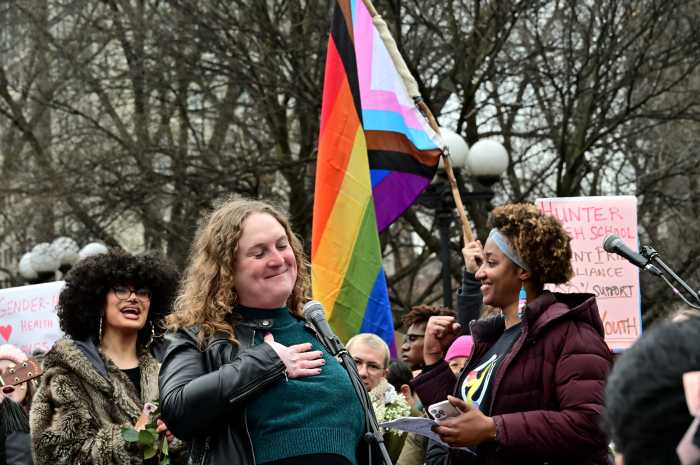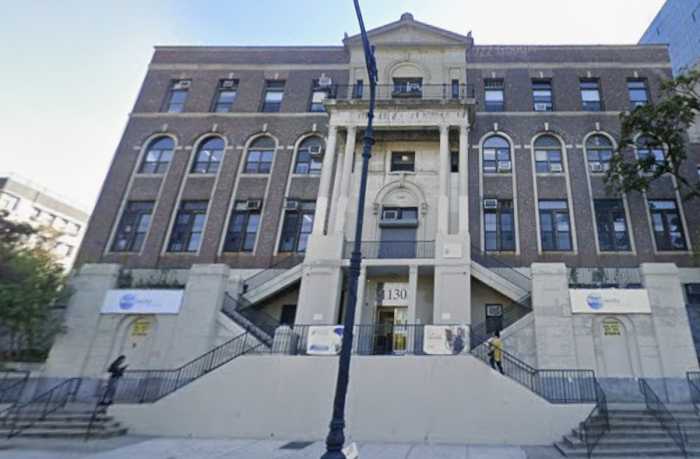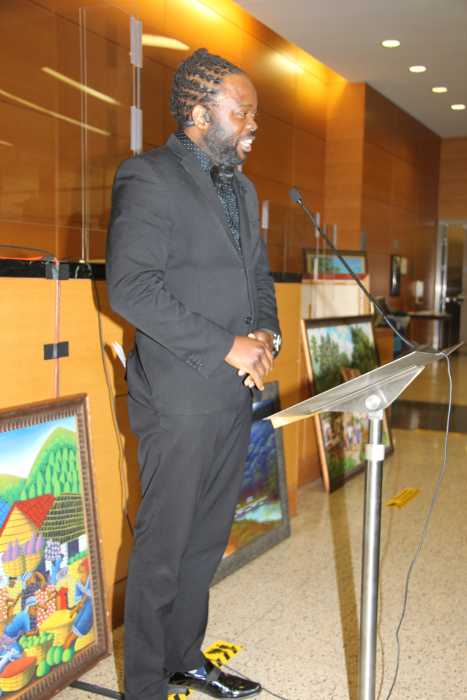Supreme Court upholds law school in denying recognition due to exclusion of non-believers, gays
In a hotly argued 5-4 ruling, the United States Supreme Court on June 28 rejected the Christian Legal Society’s First Amendment challenge to a decision by the University of California’s Hastings College of Law to deny “registered student organization” status to a CLS chapter.
Justice Ruth Bader Ginsburg wrote the opinion for the Court, joined by Justices John Paul Stevens, Anthony M. Kennedy, Stephen Breyer, and Sonya Sotomayor. Stevens and Kennedy also wrote separate concurring opinions.
Justice Samuel Alito wrote a dissent, joined by Chief Justice John Roberts and Justices Antonin Scalia and Clarence Thomas.
The sharp arguments between the justices over their alternative conceptions of the case surfaced in pointed language by Ginsburg, who accused Alito of “indulging in make-believe” and described the dissent’s analysis at one juncture as “warped.”
Alito, in turn, termed the majority opinion “misleading,” stating his hope that it will turn out to be an “aberration.”
What the majority views as a straightforward application of its “limited public forum” First Amendment jurisprudence, the dissent sees as an important battle in the culture wars and an unfortunate victory for “politically correct views” on university campuses.
In 2004, a small group of Hastings students petitioned the school to recognize a chapter of the Christian Legal Society, submitting by-laws incorporating the national organization’s requirement that members subscribe to a Christian statement of faith and abstain from any sexual activity outside of heterosexual marriage. The abstinence requirement was explained, in part, as a rejection of anybody engaging in “unrepentant homosexual conduct.”
The Hastings administration turned down the CLS chapter's application, citing the school’s non-discrimination policy, which includes protections based on religion and sexual orientation. The administration informed CLS that it would be allowed to meet on campus, but would not be eligible for student organization activity funds, paid largely out of student fees, and would not be given free access to school publications and other media to advertise its events.
When CLS representatives pointed out that there were other registered student organizations whose by-laws required students to share certain beliefs — such as the Hastings Democratic Caucus and La Raza Student Association — the administration contacted those organizations and told them they would have to revise their by-laws to eliminate such requirements. No other organization was disqualified, and, according to Alito’s dissent, CLS is the only student organization in Hastings’ history to have been denied recognition. Alito also highlighted evidence in the record that CLS’ attempts to use campus facilities have been thwarted at times by tardy administration responses.
The suit by CLS alleged discrimination on the basis of religion, in the school’s requirement that a religious organization open its membership to non-believers or those who defy the organization’s religiously-based sexual conduct code.
The federal district court rejected CLS’ argument, finding that the non-discrimination policy was content-neutral. The unpublished one-paragraph opinion from a 9th Circuit appellate panel affirmed, relying on the circuit's recent rulings in similar school cases.
The majority characterized Hastings’ regulation as an “all comers” policy, but Alito, arguing that groups can impose membership requirements so long as they are not based on the categories listed in the school’s non-discrimination code, instead called it a “some comers” policy. Student groups, he argued, are allowed to discriminate on some grounds and not others, destroying any claim to the policy’s “neutrality” and running afoul of the high court’s First Amendment jurisprudence. The non-discrimination policy, Alito maintained, is itself discriminatory against religious groups since it requires them, as a condition of participating equally in campus life, to admit into their ranks those who disagree with their religious doctrine.
Ginsburg deftly used an equal rights/ special rights distinction, often brought up by anti-gay forces, against Alito.
“CLS, it bears emphasis, seeks not parity with other organizations, but a preferential exemption from Hastings’ policy,” she wrote. “The First Amendment shields CLS against state prohibition of the organization’s expressive activity, however exclusionary that activity may be. But CLS enjoys no constitutional right to state subvention of its selectivity.”
Under the Court’s “limited public forum” jurisprudence, a public university is viewed differently from traditional public forums such as streets and town squares. A government agency, such as a state-funded law school, may place certain limits on access to its property consistent with its mission. The majority found that the balance between CLS’ free speech and free exercise of religion rights and the law school’s interest in having a non-discriminatory limited public forum among student groups given official recognition was appropriately served by allowing CLS to exist at Hastings, but without the school’s imprimatur or financial benefits. The court found that the school’s policy of requiring that registered organizations be open to “all students” was reasonable and content-neutral.
The dissenters found the policy discriminatory because it conditioned CLS’ full participation in the law school community on its willingness to accept unwanted members. One of CLS’ arguments was that its mission could be subverted by a covert campaign of non-believers and gay people to join and then install themselves as officers. The majority dismissed this as purely hypothetical, pointing out the unlikelihood of such a plot developing or succeeding.
Challenging Alito’s argument that the law school’s non-discrimination policy was itself discriminatory, Stevens, in his concurrence, wrote, “What the policy does reflect is a judgment that discrimination by school officials or organizations on the basis of certain factors, such as race and religion, is less tolerable than discrimination on the basis of other factors. This approach may or may not be the wisest choice in the context of a Registered Student Organization (RSO) program. But it is at least a reasonable choice. Academic administrators routinely employ anti-discrimination rules to promote tolerance, understanding, and respect, and to safeguard students from invidious forms of discrimination, including sexual orientation discrimination. Applied to the RSO context, these values can, in turn, advance numerous pedagogical objectives.”
Stevens also noted that the dissent seemed to have lost sight of the court’s traditional distinction between intentional discrimination and the discriminatory side effects of neutral policies. Hastings’ content-neutral ban on religious and sexual orientation discrimination might incidentally burden CLS, he wrote, but this was not a burden that would be recognized as violating First Amendment norms, based on the court’s own finding that neutral laws of general application could be applied to religious organizations, even though they imposed an incidental burden on free exercise. This approach, adopted in a case involving Native American religious use of peyote, was the brainchild of conservative members of the court, among them some who joined Alito’s dissent.
Alito’s lengthy dissent, longer than Ginsburg’s majority opinion for the court, characterized the case as a major challenge to full participation in campus life by Christian students, arguing, in effect, that policies banning religious and sexual orientation discrimination are an unconstitutional attempt by public universities to impose liberal political correctness on dissenting religious students.
“I do not think it is an exaggeration to say that today’s decision is a serious setback for freedom of expression in this country,” he wrote. “Even those who find CLS’ views objectionable should be concerned about the way the group has been treated — by Hastings, the Court of Appeals, and now this Court. I can only hope that this decision will turn out to be an aberration.”
That four members of the Court signed Alito’s dissenting opinion shows the narrow thread by which the Supreme Court supports gay discrimination claims in the face of religious opposition, helping to explain why LGBT political and legal groups submitted searching questions to the Senate Judiciary Committee to be posed to Supreme Court nominee Elena Kagan.


































